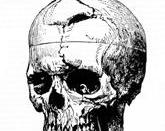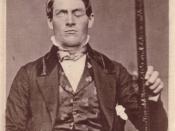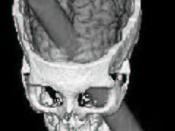Given the science and technology of today, there can be no doubt that the brain controls everything the body does. The brain alone commands, and with the help of the rest of the central nervous system controls, the various operations of the body through autonomic functions like heart beats, breathing, and voluntary functions like looking, lifting, and others (University of Washington, n.d.). Cognitive functions are not exactly autonomic functions, nor are they completely voluntary, instead they are a complex combination of the two, possible to be controlled from either side in a healthy brain. In an unhealthy or damaged brain the control may not be balanced, damage to parts of the brain may restrict, modify, or remove, voluntary or involuntary control of actions and abilities. In this paper, the concept of the brain's role in cognition will be explored; the paper will discuss the accounting of Phineas Gage and his traumatic head injury, and discuss the operation of the prefrontal cortex of the brain as it applies to cognition.
As it applies to cognition, the brain is a very complex tool that humankind is permanently attached to, based on the operation of this tool, it either serves us, or inhibits us.
The Case of Phineas GagePhineas Gage, was employed by a railroad construction company working near Cavendish, Vermont, as a foreman in1848 (Macmillan, 2000). On September 13, 1848 an accidental explosion drove a tamping rod through the head of Mr. Gage (Macmillan). The tamping rod passed from his cheek through his head landing several yards away (Shreeve, 1995). Phineas Gage recovered relatively quickly, but he was not the same person whom he was before the accident "In place of the diligent, dependable worker stood a foulmouthed and ill-mannered liar given to extravagant schemes that were never followed through"...


